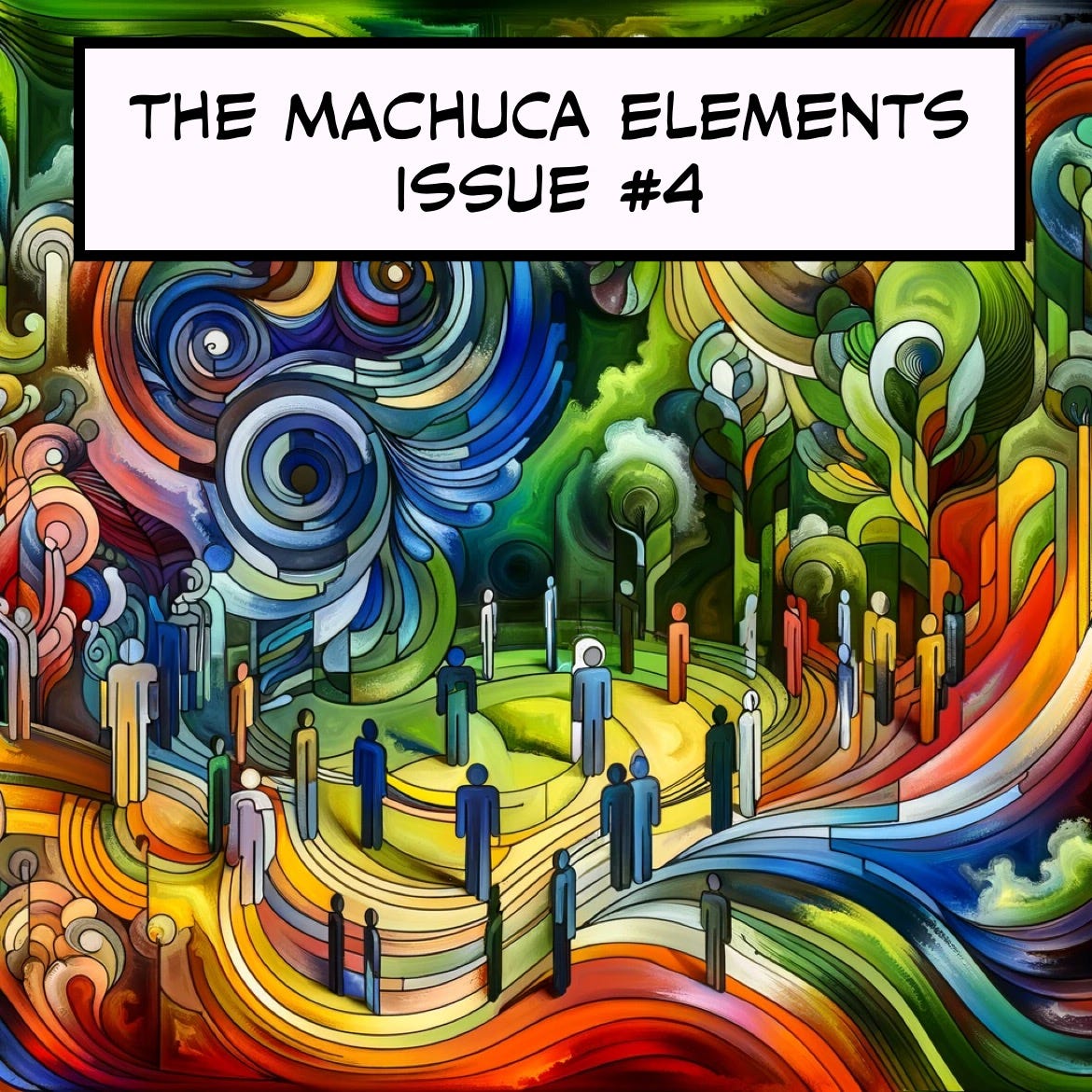Issue #4: Who's building your community?
Reflections on the visible infrastructure of our communities and how we connect to the often "invisible" workforce that makes it all possible.
The Machuca Elements Newsletter is growing! We continue to bring you different voices, today’s story is submitted by Rosa. We also have an editor to make sure the content is delivered in a smooth way, thank you Lovica Callisti for editing this issue.
Let’s start the year with some gratitude and reflect for a moment on who’s actually building our communities. In this case I’m referring to the physical spaces where we reside or will reside shortly. The roads that lead to our houses, the trees that line our communities and connect us to nature, the gardens that produce nutritious food for our tables, the tables themselves at which we eat those harvests, and of course the roofs above our head.
A traditional way of looking at this relationship is fairly transactional. There are workers, whom we hire to do a particular job - be it gardeners, maintenance people, construction crews, etc. We pay them money and in return we expect to receive a product according to our specification. Sometimes this relationship is direct and often it is intermediated: you buy a lot in a community and the cost of the lot includes all the stuff that comes with the community such as gardens, pool, common spaces and roads. In this case you’re technically hiring a “company” to give you that final product and the company in turn goes out and hires a workforce to deliver that product, collecting their share of your payment in the process.
There is nothing wrong with this framework - after all, this is precisely how the world works today. However, we, the eco-dreamers of Machuca Valley like to believe that we are building more consciously. Sometimes, to my own surprise, I find evidence of what seemed like just a belief becoming reality, materializing into a way of doing things that is truly more conscious and that goes beyond an “I’m nice to my workers, pay fair wages and give bonuses at Christmas” mindset. In the story and an accompanying video submitted by Rosa below, we can see one of these new ways of transcending the transactional relationship between owner and worker.
Ecovilla San Mateo “hands on earth” by Rosa Nurjamila Blanco
Between February and December of 2023, I had the opportunity to connect monthly with the Ecovilla San Mateo "hands on earth" (gardeners, forestal, seeds collectors, maintenance) team in such a way that allowed me to gain a deep appreciation of this pioneering group who are creating the foundations and literally planting the seeds for the future generation.
These monthly circles, consisting mostly of men, met with the aim of providing voice and visibility to this foundational team, building coherence among the various labor groups, and articulating the importance of what they do. It was wildly successful.
It was beautiful for me to witness the friendship and solidarity among them. The way they express with words how much they like their teams and the work they do.
These spaces reinforce the importance of the team’s role in the Company and the future community
The final circle of the year, on Dec 13th, focused on self-recognition - a recognition that comes from within and doesn’t require an other to reflect it.
For this meeting we welcomed Alan Sternik, elder and guardian of Native American traditions. He shared some words and blessed the participants with a Hawk feather, asking only for the full presence to receive this blessing.
This closure event included the whole office team as well. We all sat together in the same circle, equally equidistant from a candlelight in the center, sharing our momentum of unity, appreciation, and equality.
You can find Rosa on Instagram: @rosa_nurjamila
Reflections on Shared Experiences
The inspiring story and video leads me to reflect on the value of shared experiences. In the old tribal times we would build our village together ourselves. We’d go into the woods together, chop down some trees, carry them back into the village and put up our houses. We’d plow our own fields to grow our own food or perhaps we’d hunt together. If there were enemies, we would stand together and fight them off. The point here is not “lets go back to good old hunting and fighting days!”, but rather a reflection on how these shared experiences would bind us together as a community because we were both dependent on each other for basic needs and had shared real-world experiences.
In the present day we have outsourced most of our basic needs to someone else. Someone else is building our physical infrastructure, someone else is growing our food (even when it’s grown right here), someone else is often preparing our food and cleaning our houses. The question then is: what do we actually need from one another? How do we depend on each another? And what shared experiences do those needs and dependencies lead to?
I imagine these questions have many answers. If you are called to share your version of the answer, please reach out and we’ll share it here with everyone.




